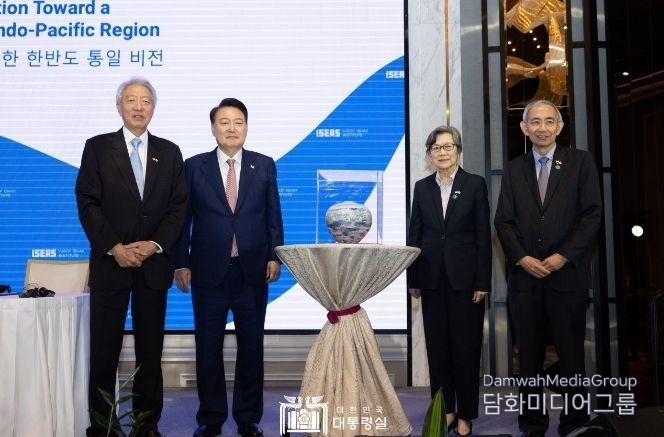By Diplomacy Journal Lee Jon-young
During his state visit to Singapore, President Yoon Suk-yeol attended the Singapore Lecture organized by the Institute of Southeast Asian Studies (ISEAS) in Singapore on October 9 and delivered a speech entitled “A Unified Korean Peninsula for a Free, Peaceful, and Prosperous Indo-Pacific.”
The audience included leading public figures from all walks of life in Singapore, members of the diplomatic corps, Korean compatriots and international students.

In his speech, the President noted that Korea’s Indo-Pacific Strategy of Freedom, Peace, and Prosperity and the Korea-ASEAN Solidarity Initiative (KASI) are in line with ASEAN's Indo-Pacific Outlook (AOIP), and that a free and unified Korean Peninsula, as envisioned in the August 15 Unification Doctrine issued last Liberation Day, will contribute to freedom, peace, and prosperity in the Indo-Pacific region.
The President also said that the Republic of Korea will further cooperate with the international community in spreading freedom and safeguarding peace, and continue its efforts to develop an open economic cooperation system and free trade regime to contribute to sustainable prosperity.
In the Q&A that followed, the audience asked about South Korea’s policy toward North Korea, how it will take into account the North Korean regime's opposition to the South’s unification doctrine, and how the South will conduct public diplomacy with the United States and China amid political and economic conflicts and competition between the two countries.
In response, the President said that the South will patiently work in solidarity with the international community to bring full freedom and human rights to the people of North Korea under the principle of promoting free, peaceful reunification as stipulated by its Constitution.
He also said that any competition in the international community must be conducted in a manner that respects the norm-based international order, and that it is important to actively communicate and persuade our positions so that the U.S.-China relationship does not disadvantage Korean companies and people.
The President's Singapore Lecture was his first lecture abroad since the announcement of the August 15 Unification Doctrine, and it was an important opportunity to communicate to Singapore, ASEAN, and the international community the significance of the South’s efforts to realize a free and unified Korean Peninsula to the Indo-Pacific region.







